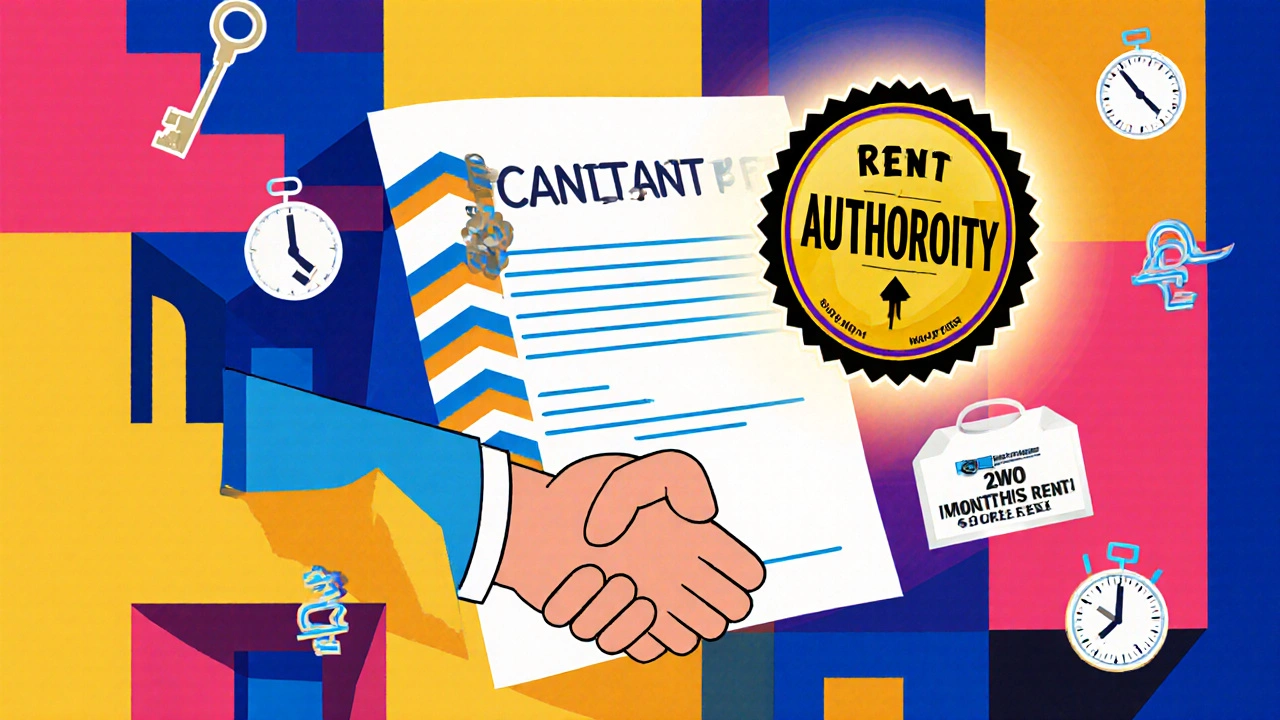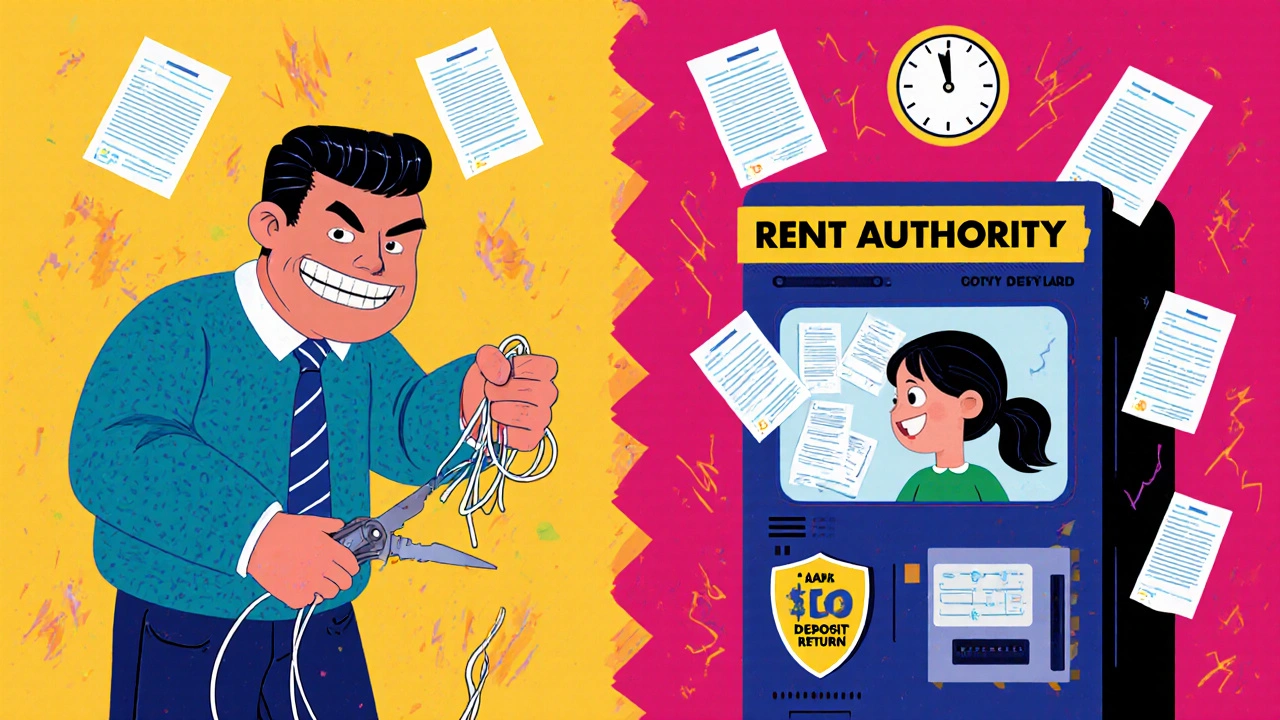Tenancy Laws in India: Model Tenancy Act, Security Deposits, and Evictions Explained
 Nov, 16 2025
Nov, 16 2025
When you rent a home in India, whether it’s a one-bedroom flat in Bangalore or a storefront in Jaipur, you’re not just signing a lease-you’re stepping into a legal landscape that’s been changing fast. The old rules, written decades ago, didn’t account for today’s renters, landlords, or the booming rental market. That’s why the Model Tenancy Act was introduced in 2021, and why it’s now the most important thing every renter and property owner needs to understand.
What the Model Tenancy Act Actually Changes
The Model Tenancy Act isn’t a national law yet-but it’s been adopted by over 20 states, including Maharashtra, Tamil Nadu, and Uttar Pradesh. It replaces outdated state-level rent control acts that made it nearly impossible for landlords to evict tenants, even when rent went unpaid for years. The new rules bring balance.
Under the old system, a tenant could stay for decades, even after stopping payments. Landlords had to go through courts that took 5-10 years just to get a case heard. The Model Tenancy Act cuts that down. Now, if rent is unpaid for two months, the landlord can start eviction proceedings. The tenant gets a 30-day notice. If they don’t pay or leave, the Rent Authority-a new government body set up in each district-handles the case. Hearings happen within 60 days. No more decade-long delays.
This law also forces landlords to register every rental agreement with the Rent Authority. That means no more handwritten notes on napkins. Agreements must be in writing, signed by both parties, and include rent amount, duration, security deposit, and maintenance responsibilities. This isn’t just paperwork-it’s protection. If you’re a tenant, you have proof of what you agreed to. If you’re a landlord, you can prove your case if things go wrong.
Security Deposits: How Much Can You Really Be Asked For?
One of the biggest complaints from renters? Being asked for six months’ rent as a security deposit. Some landlords still do it. But under the Model Tenancy Act, that’s illegal.
The law caps the security deposit at:
- Two months’ rent for residential properties
- One month’s rent for commercial properties
That’s it. No more “additional charges” for furniture, pets, or cleaning. The deposit must be held in a separate bank account, and the landlord must give you a receipt. If they don’t, you can report them to the Rent Authority.
At the end of the tenancy, the landlord has 30 days to return your deposit. If they deduct anything-say, for damaged walls or broken fixtures-they must give you a detailed, itemized list. No vague claims like “it looks old.” You get to see photos, repair invoices, or estimates. If you disagree, you can challenge it before the Rent Authority. They’ll decide within 30 days.
Real example: In Pune, a landlord tried to withhold ₹45,000 from a ₹20,000/month deposit, claiming the tenant “left the kitchen dirty.” The tenant provided photos from move-in day showing the same condition. The Rent Authority ordered the full deposit returned within 15 days. That’s the power of this law.
Evictions: When Can a Landlord Actually Kick You Out?
Eviction used to be a nightmare. Now, it’s clear. The Model Tenancy Act lists only five legal reasons a landlord can ask a tenant to leave:
- Non-payment of rent for two consecutive months
- Subletting without written permission
- Using the property for illegal activities
- Causing serious damage to the property
- Landlord needs the property for personal use (with 3 months’ notice)
That’s it. No more “I want to sell the house” or “I found a better tenant.” If a landlord tries to evict you for any other reason, you can fight it. And you have rights.
Here’s how it works: The landlord must give you a written notice, signed and dated, explaining why they’re asking you to leave. You have 30 days to respond or fix the issue-like paying the rent or stopping unauthorized subletting. If you don’t, they file a case with the Rent Authority. You get a hearing date. You can bring witnesses, documents, or even a lawyer. The decision comes within two months.
Landlords can’t cut off water, electricity, or lock you out. That’s illegal. If they do, you can file a complaint and get compensation. In Hyderabad, a landlord locked out a family for not paying one month’s rent. The Rent Authority fined him ₹50,000 and ordered him to restore utilities immediately.

What Tenants Still Need to Watch Out For
The law is strong-but it only works if you know your rights. Many renters still sign agreements without reading them. Some landlords still demand extra cash under the table. Others refuse to register the lease because they want to avoid taxes.
Here’s what you must do before signing anything:
- Get a copy of the signed agreement. Keep it in a safe place.
- Verify the landlord owns the property. Ask for the property tax receipt or sale deed.
- Check if the agreement is registered with the Rent Authority. You can verify this online in most states.
- Never pay more than two months’ rent as deposit. If they say “it’s standard,” walk away.
- Take dated photos of the property when you move in. Include every wall, floor, appliance, and fixture.
If you’re a landlord, do the same. Register your property. Keep records. Don’t take cash without receipts. The law protects you too-if you follow it.
Commercial vs. Residential: Different Rules, Same Protection
Business owners renting shops or offices often think they’re on their own. They’re not. The Model Tenancy Act applies to commercial rentals too, just with different deposit limits.
For commercial spaces, the security deposit is capped at one month’s rent. Rent increases? They can only happen after 12 months, and only with 3 months’ written notice. Tenants can’t be forced out just because the landlord wants to charge more. And if the property is sold, the new owner must honor the existing lease.
One shop owner in Ahmedabad had his rent doubled after his landlord sold the building. The new owner gave him 15 days to leave or pay more. He filed a complaint. The Rent Authority ruled the new owner had to honor the original terms until the lease expired. He stayed, paid the same rent, and got a 10% discount for the inconvenience.

What Happens If You Move Out Early?
Life changes. You might need to move for a job, family, or health reasons. The law lets you break a lease-but not without consequences.
If you leave before the agreed term, you owe rent until the landlord finds a new tenant. But they must make a good-faith effort to re-rent. They can’t leave the place empty for six months and still charge you. If they find someone after two months, you only owe two months’ rent.
Some agreements include a break clause. That’s a good thing. It lets you leave after six or eight months with a 30-day notice. Always ask for one when signing. It’s your safety net.
Where to Go If Things Go Wrong
If your landlord won’t return your deposit, threatens you, or cuts off utilities, don’t wait. Go to your state’s Rent Authority. Every state has a website where you can file a complaint online. You’ll need:
- Your rental agreement
- Proof of rent payments
- Photos of property condition
- Any communication with the landlord
Most cases are resolved in under 60 days. No court fees. No lawyers needed. The Rent Authority acts like a mediator first, then a judge if needed.
Some states even have helplines. In Delhi, you can call 1800-123-4567 for free advice. In Bengaluru, the Rent Authority sends inspectors to check property conditions if you report a dispute.
Why This Matters for Real Estate Investors
If you’re buying property to rent out, the Model Tenancy Act isn’t a threat-it’s a tool. It makes renting predictable. You know exactly how much you can charge, how much deposit you can hold, and how fast you can act if a tenant defaults.
Properties registered under the Act are easier to finance. Banks now offer rental income loans, but only if the lease is registered. Insurance companies also require it. Tenants trust registered properties more. That means fewer vacancies and less turnover.
One investor in Chennai bought five apartments. He registered all leases under the Model Tenancy Act. Within a year, his vacancy rate dropped from 22% to 4%. Tenants stayed longer because they knew their rights were protected. He didn’t have to fight evictions. He didn’t lose deposits. He just collected rent-on time, every month.
This law is the foundation of a modern rental market. It doesn’t favor landlords or tenants. It favors fairness. And if you’re serious about real estate in India, you need to be part of it.
Can a landlord increase rent anytime under the Model Tenancy Act?
No. Rent can only be increased once every 12 months, and the landlord must give the tenant at least three months’ written notice. The increase must be reasonable and based on market rates, not arbitrary. If a landlord tries to raise rent mid-lease, the tenant can refuse and file a complaint with the Rent Authority.
What if my landlord refuses to register the rental agreement?
Unregistered agreements are not legally enforceable under the Model Tenancy Act. You can still live in the property, but you lose key protections-like the right to challenge unfair evictions or get your deposit back quickly. Report the landlord to the Rent Authority. They can impose fines and require registration. Always insist on a registered agreement before paying any money.
Is it legal for a landlord to hold my ID proof as collateral?
No. Holding original documents like Aadhaar, PAN, or passport as collateral is illegal. Landlords can ask for copies for verification, but they cannot keep originals. If they do, you can file a complaint with the Rent Authority or local police. This is a common tactic used by unscrupulous landlords-don’t let it happen to you.
Can a tenant sublet the property without permission?
No. Subletting without the landlord’s written consent is a ground for eviction under the Model Tenancy Act. Even if you’re just letting a friend stay temporarily, you need approval. Always ask in writing. If the landlord says no, they must give a valid reason. You can’t be forced to accept a sublet if you’re not comfortable with it.
How long does it take to get my security deposit back after moving out?
The landlord has 30 days from the date you vacate to return your deposit. If they deduct any amount, they must provide a detailed list of damages with photos or repair bills. If they don’t return it within 30 days, you can file a complaint with the Rent Authority. They’ll order the refund within 15 days of the hearing.
If you’re thinking about renting or investing in property in India, the Model Tenancy Act is no longer optional. It’s the new standard. Whether you’re a student in Delhi, a professional in Hyderabad, or an investor in Pune, knowing these rules means you won’t get taken advantage of. And that’s worth more than any security deposit.
